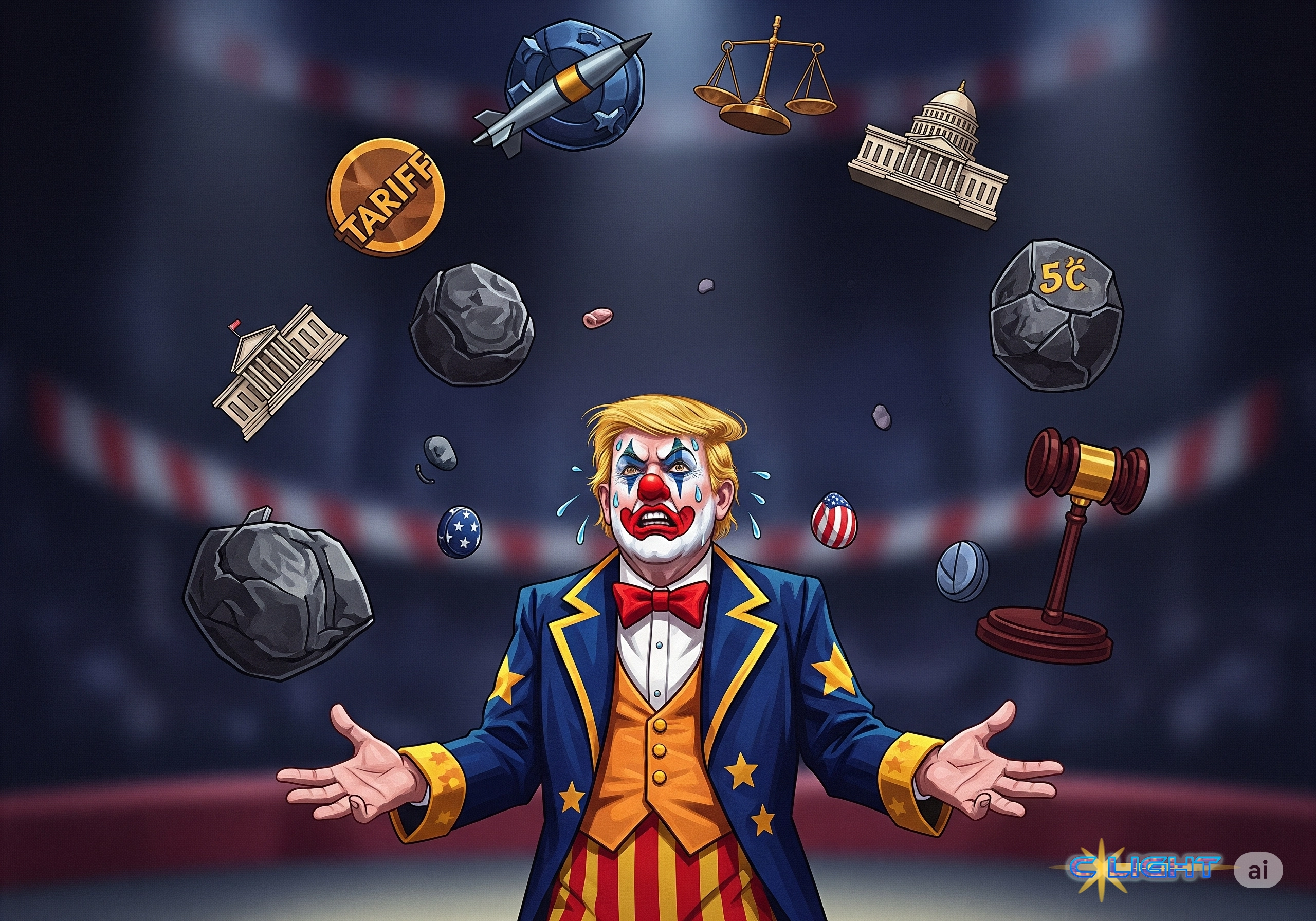In April, President Felonious Punk declared a new front in his global economic war, announcing a suite of punitive tariffs and confidently predicting a flurry of diplomatic activity. His administration forecast “90 deals in 90 days,” anticipating that the world, cowed by American economic might, would rush to the negotiating table to offer concessions. Now, weeks later, the world’s primary response has been a deafening silence. While some analysts credit this inaction to foreign leaders learning to call the president’s bluff, the reality is more fundamental. The world has discovered the ultimate counter to this administration’s chaotic style: passive resistance. They have realized that the White House, overwhelmed by a constant storm of self-created crises, lacks the focus and bandwidth to follow through on its own threats. The surest way to defeat a policy is often to simply do nothing and wait for the president to lose interest.
The administration is currently engaged in a multi-front war, almost entirely of its own making. On any given day, the White House is managing the acute military standoff with Iran and the subsequent fallout, navigating a contentious domestic budget battle that threatens a government shutdown, implementing a new and controversial travel ban, and fighting numerous legal challenges to its executive orders in federal court. This state of perpetual crisis, fueled by a constant need for new stimuli, makes the sustained, nuanced, and frankly tedious work of international trade negotiation a virtual impossibility. No administration, let alone one so intensely centered on the daily whims of a single individual, can effectively manage this many fronts simultaneously. The president’s attention has become the most valuable—and most scarce—resource in Washington.
The tangible effect of this attention deficit is a government landscape littered with forgotten priorities and initiatives left to wither on the vine. Barely a month ago, the “Make America Healthy Again” (MAHA) commission released a major report that was touted as a revolutionary overhaul of the nation’s health; today, the topic has all but vanished from the White House press briefing schedule, overshadowed by more compelling dramas. Similarly, the aggressive immigration enforcement actions that once dominated headlines continue to be carried out by agencies on the ground, but the president himself, the primary driver of the national narrative, has moved on. These are not signs of a well-oiled machine, but of an overwhelmed one, pathologically incapable of maintaining focus.

Foreign leaders and trade negotiators have taken note. While the “TACO” (Trump Always Chickens Out) doctrine—the theory that the president folds at the first sign of meaningful resistance—is part of the story, a more sophisticated strategy has emerged. Leaders like China’s Xi Jinping are no longer engaging in a reactive, tit-for-tat trade war. They are simply waiting. They have recognized that active resistance only feeds the president’s need for conflict and spectacle. Passive waiting, by contrast, starves the issue of the oxygen it needs to survive. The European Union’s quiet approval of retaliatory tariffs and China’s slow-walking of talks are the geopolitical equivalent of the childhood tactic: “Don’t say anything and maybe he’ll forget about it.” The spectacular failure of the “90 deals in 90 days” prediction is the prime exhibit of this new strategy’s success.
Ultimately, the greatest threat to Felonious Punk’s agenda is not foreign resolve or domestic opposition, but his own administration’s structural inability to sustain focus. The so-called “Trump Doctrine” is not one of realism, isolationism, or coercion. It is, in practice, a Doctrine of Distraction. It is a foreign policy conducted by soundbite and threat, where the objective is not to win the long game but to dominate the current news cycle. And the world has learned that in a negotiation with an adversary who is guaranteed to eventually become distracted and wander off to the next shiny object, the most effective and powerful strategy is often to simply stand still and wait.
Discover more from Clight Morning Analysis
Subscribe to get the latest posts sent to your email.













